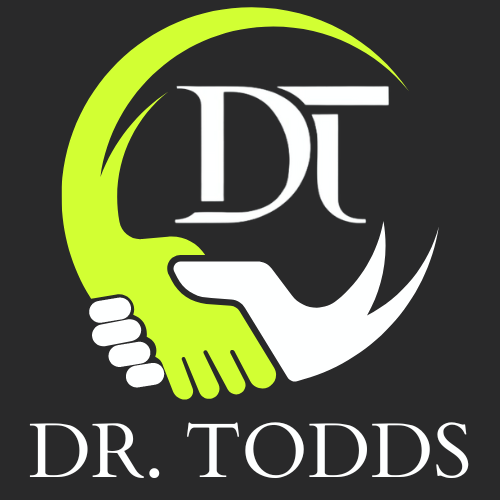
Insurance is one of those things you don’t really think about until you need it. But when that day does come, how well do you know your insurance rates and what’s included?
Insurance policies are important to have when you want to be fully prepared for the worst possible situation. However, they’re often expensive and people can’t afford them. In this article, we’ll go over the different types of insurance policies and what they cover so that you know what you need to prepare for.
What Is Insurance?
Insurance is a broadly used term that describes various types of protection. An insurance policy is a contract between you and an insurance company in which you pay premiums and the company agrees to pay certain specified benefits in the event of a loss.
What are the different types of Insurance?
Insurance is a crucial tool necessary for protecting both individuals and businesses, addressing a wide array of needs. Personal insurance typically covers health, life, and homeownership, ensuring financial security for families. This type of insurance is crucial for ensuring the well-being of your family during personal emergencies. For instance, having health insurance in place can alleviate the financial strain caused by an unexpected accident requiring immediate medical attention. It can also prove beneficial when facing long-term health-related issues. Given the potentially high cost of medical bills, having a clear understanding of the florida health insurance marketplace (if that’s where you’re located) and choosing the best insurance policy can significantly impact managing healthcare costs. Similarly, home insurance can safeguard your property and belongings, providing financial assistance in the event of unforeseen circumstances like natural disasters, theft, or accidents.
Meanwhile, commercial insurance is known for catering to businesses, encompassing various sectors, including specialized areas like gun clubs, which often make use of gun club insurance. Beyond gun club insurance, there happen to be various other commercial insurance types that serve distinct industries. Examples include commercial property insurance, safeguarding against damage or loss of physical assets; liability insurance, covering legal expenses and damages; and business interruption insurance, compensating for income loss during disruptions. This multifaceted insurance landscape is crucial for mitigating risks, and providing a sense of security in an unpredictable world.
How Does It Work?
When you purchase an insurance policy, you are essentially paying for peace of mind. In the event that something unexpected happens, your insurance policy will help to cover the cost of damages or expenses.
But how does your insurance policy know how much to pay out in the event of a claim? And how does the insurance company determine how much to charge you in premiums?
Let’s break this down with an example. Imagine you’ve bought a medical insurance policy from a company. When you receive any medical treatment, this policy comes into play to cover your bills. Now, you might wonder why a hospital would accept your insurance. The answer lies in the contracts formed between healthcare providers and insurance companies, often facilitated by a managed care contracting expert.
These contracts outline the terms and conditions of payments that hospitals will receive from insurance providers on behalf of patients. This process is how an insurance company decides how much to pay and what they will charge you.
While this is just an example related to health insurance, other types of insurance policies operate similarly. Considering all the prominent factors, insurers calculate a premium that they believe is a fair price for their coverage. It’s important to note that this is an estimate, and actual claims will be settled based on their individual circumstances and merits.
Why Do You Need To Buy Insurance Policies?
There are a number of reasons why you might need to buy insurance policies. For example, if you own a home, you’ll need to insure it against fire, theft, and other risks. If you have a car, you’ll need to insure it against accidents and theft. And if you have a business, you’ll need to insure it against a variety of risks. Similarly, if you are undertaking any major construction project, you may need to purchase builders risk insurance. This type of policy is designed to protect against property damage during the course of building or renovation. It covers risks like fire, theft, vandalism, and damage from wind and other natural disasters. The cost of insurance depends on the size and value of the construction project. More extensive projects that require expensive materials and take longer to complete will typically incur higher premiums for this type of insurance coverage.
The cost of insurance depends on the amount of coverage you need and the type of policy you choose. For example, liability insurance for your car will cost more than collision insurance. And comprehensive insurance for your home will cost more than fire insurance.
When you’re shopping for insurance, be sure to compare rates from different companies. You can do this by getting quotes online or by calling insurers directly. Be sure to ask about discounts that may be available, such as for multiple policies or good driving records.
What Are The Different Types Of Insurance Policies?
There are many types of insurance policies available to consumers. The most common include:
- Homeowners Insurance
- Renters Insurance
- Auto insurance
- Life insurance
- Health insurance
- Disability insurance
- Long-term care insurance
Each type of policy has different coverages and features. It’s important to understand the differences between them before selecting a policy.
The True Cost Of Your Policy
When it comes to the true cost of your insurance policy, there are a few things you need to take into account. First, you have to consider the premium – this is the amount you’ll be paying on a monthly or yearly basis. Then, you have to look at the deductible, which is the amount you’ll have to pay out-of-pocket before your insurance coverage kicks in. Finally, you need to consider the coinsurance, which is the percentage of covered expenses that you’ll be responsible for paying.
All of these factors can vary depending on the type of insurance policy you have. For example, health insurance policies typically have lower premiums and higher deductibles than auto insurance policies. However, it’s important to compare apples to apples when looking at different policy costs. Make sure you’re looking at policies with similar coverage levels and deductibles in order to get an accurate comparison.
Once you’ve taken all of these factors into account, you can start to get a sense of the true cost of your insurance policy. Keep in mind that these costs can change over time, so it’s important to review your policy regularly and make sure you’re still getting the best value for your money.



